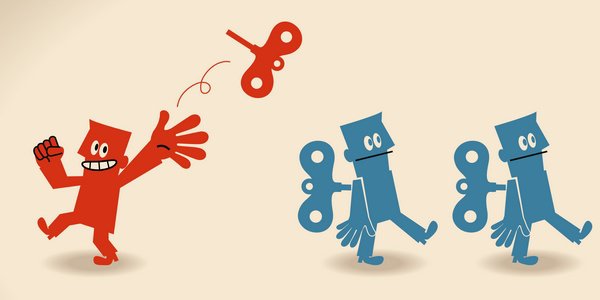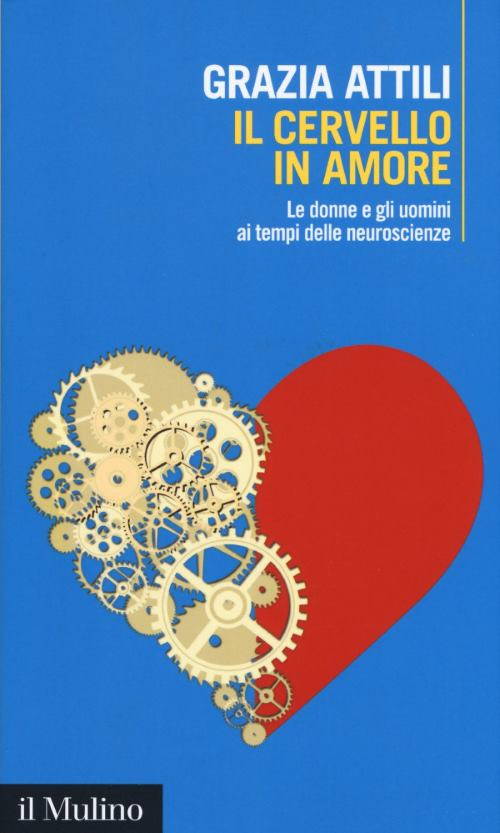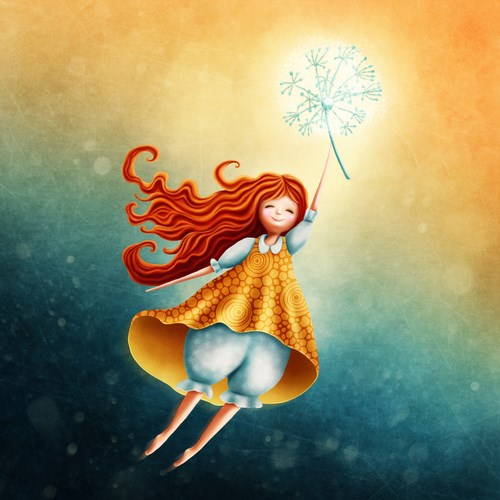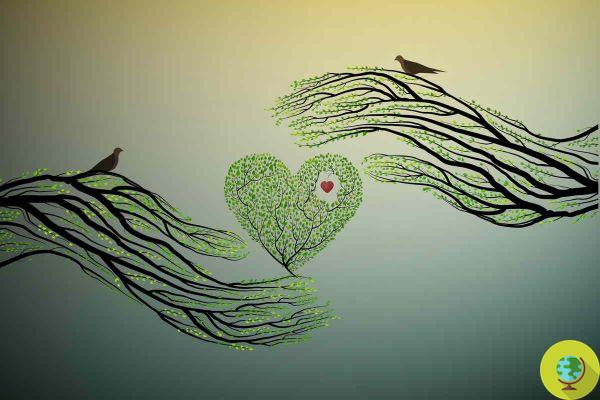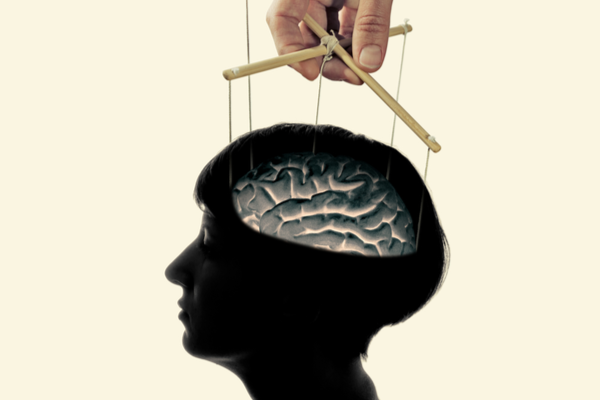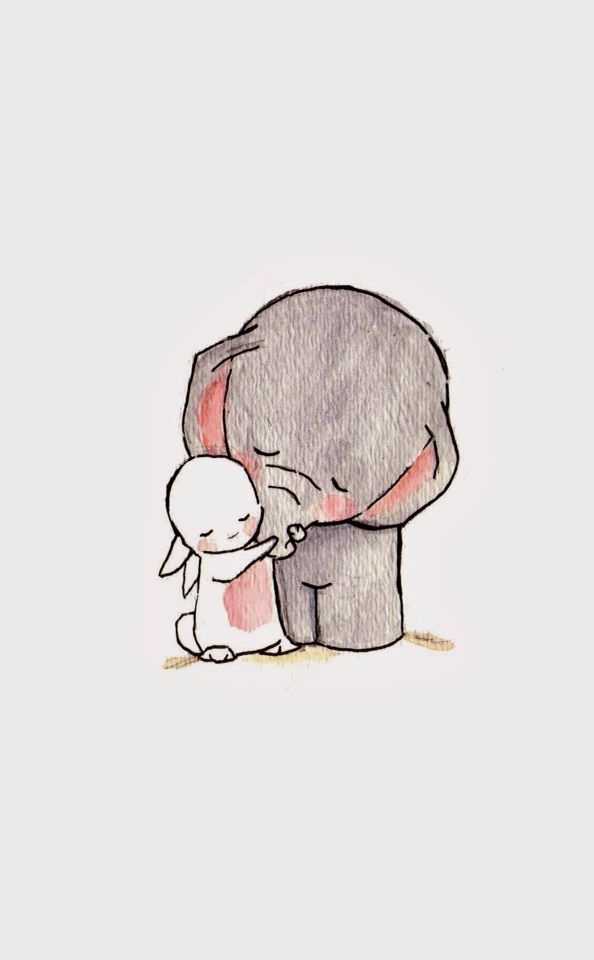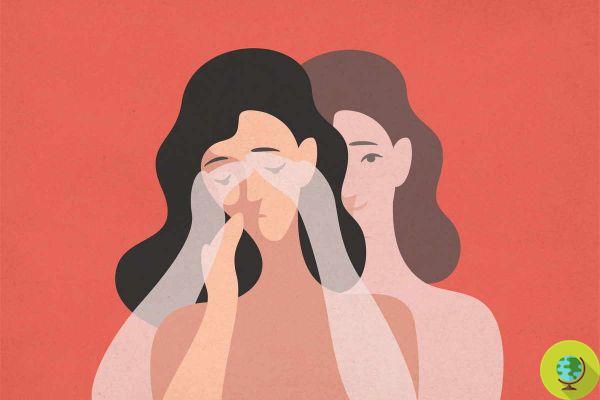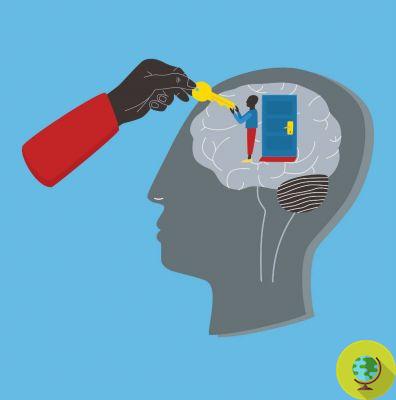
In the context of personal growth, facing an individual work path with an expert in helping relationships is, as a rule, a good investment: it allows you to access new understandings of yourself, to live a fuller, happier, more aware life.
Don't store avocado like this: it's dangerous
In the context of personal growth, facing an individual work path with an expert in helping relationships is, as a rule, a good investment: it allows you to access new understandings of yourself, to live a fuller, happier, more aware life.
It also allows you to have personalized answers and advice.
However, some of the things you learn are valid for most people: here are 8, to always keep in mind (not just when needed).
Index
What we experience in very early childhood affects our life
The emotional and relational environment of the very first years of life is fundamental because it determines, in every child, his way of looking and interpreting the world, his feeling of safety or danger, his self-esteem. Attentive parents (and yes, in particular the mother, especially in the first two years), responsive, allow you to grow up with a good optimal level of trust in oneself and in others, with a secure attachment. Not only that: as adults, we tend to seek in / in the partner the characteristics of the parent of the opposite sex to ours, with all the consequences that derive from this.
Recognizing that many mechanisms have been "inherited", understanding that this has happened because parents too have been children who have inherited models and difficulties, helps to make peace with the past, to love one's roots more consciously and to project forward , in life, with the awareness that - always - you can change. As the farmer causes animal manure to settle, he "works" them so that they turn into manure and with this he then fertilizes the soil, so that luxuriant plants, rich in juicy fruits and spectacular flowers, grow, so we can take advantage of the most difficult difficulties. or less great encountered: they become our stick to overcome, the talent we are called to develop.
Read also: Mom, I need you: the 4 attachment styles that condition us from the cradle
We cannot always find rational explanations for the actions of others
In some situations we cannot explain the behavior of others: we do not understand why they said or did this or that. The truth is that what for one may be absurd, for another is normalcy: it depends on the atmosphere in which one grew up, on the experiences made. A person can claim to want to go right and then, concretely, his steps lead him to the left even if he insists to always keep to the right. There are two truths to always keep in mind: the first is that each of us has his own experience, his way of understanding and experiencing emotions, situations, problems; the second is that - many times - rational thought and will are "transformed" by what moves between the unconscious and the subconscious (and it can take a lot of time and a lot of personal work to "see" it).
Having said this, it remains interesting for us to understand why in our life we encountered that situation, we found ourselves in that context, at that moment: what is the useful part, the hidden teaching, the stimulus to grow that "came to meet us "?
Read also: Ignoring (not) is the best answer
In problematic situations, it is better to start from yourself
Each of us reacts to situations based on how they "resonate" within. Perhaps everyone has happened to say to someone: "I'm suffering for what you did to me" being answered: "Sorry but what have I done?". Everyone has his own experience: what a person can experience as an aggression, an indelicacy for another is nothing special. To facilitate dialogue, therefore, it is better to start from yourself, sticking to a "journalistic" description of the events, to tell about your feelings and state of mind. For example, saying: "when you told me this and that, I felt hurt, sad, disoriented" predisposes the listener in a different way than an accusatory sentence such as "your words have hurt me".
If we want to change a relational, emotional situation, the first thing we can do is start with ourselves: this is the most challenging playing field and, at the same time, the only one on which we have responsibility and the possibility of action. Others will change, and consequently modify their choices, their behaviors, only when, if and how they want it: it falls within free will and depends on their possibilities (even if it is true, as the systemic approach reminds us, that everything is connected: if one part changes, there is a good chance that this will have an active and transformative influence on the rest as well).
Taking responsibility for one's own contribution (conscious or unconscious) to the situation, one's feeling, thinking - without pointing the finger at others, without accusing - allows you to create an environment suitable for dialogue and comparison.
Read also: Making Peace With Yourself: The Practice of Removing the Object
Honor who you are, welcome confrontation
Comparing with others is important, it helps to reflect, to look at things from new points of view and can also lead to change your mind. This becomes positive and enriching only if you have a good awareness of yourself, your interests and goals.
Being inspired by others can be fantastic but adhering to others' models, even if they are winning, distances us from our Self and lays the foundations for a life that will become, deep down, unhappy.
Read also: The law of the mirror: what you see in others is your reflection
It is important to get out of your comfort zone
In one's own safe nest, nothing new can happen: in personal, professional, relational life, in interests. You have to dare, try new things, go to different places, open yourself up to the effervescent and magical world of the possibilities that life offers.
Those who remain firm in their habits and knowledge slowly die, as a poem by Neruda recalls. Opening up, trying, experimenting - with the desire for good for oneself and for others - allows you to learn, grow, improve, make good encounters. Which is life.
Read also: Self-sabotage: how to avoid becoming your own worst enemy
Protect one's "borders"
It can happen that you do not feel respected in your own spaces or even invaded: the mother-in-law who annoys and puts her beak where it shouldn't; the neighbor who uses not only his condominium spaces but also yours; the co-worker trying to make your shoes. Often these situations are resolved when you become aware of your "territory", set the boundaries and choose how, who, if and when others can "enter".
Being aware of one's place (in the various areas of life) and, consequently, defining the boundaries increases personal strength and authority. This "change" will also be perceived by others: perhaps the inappropriate behaviors will continue but those who act them will no longer have an easy life as before.
Read also: How to cultivate (and regain) inner strength
It always starts with one step
Leaving the habits, the paths always made, the beliefs that have always accompanied us is not trivial. Once an objective, a direction, has been identified, attention must shift to the path: one step at a time. Every journey begins with one step. And then comes the next one. And so on.
Every day, for at least three weeks, look at the steps taken, how to improve them, make them more effective the next day (without worrying about the final result).
Read also: 7 daily rituals to improve the abilities of our mind
Treasure the knowledge that comes from lived experiences
Every stressful situation requires new, unexpected energies: it is necessary to bring out the talents not yet used; an effort is needed that trains and consolidates the knowledge already acquired; it requires a creative, new point of view. However challenging, demanding, it can be seen as an opportunity and not a "bad luck": the approach with which it is faced always makes the difference.
Experience makes you grow, helps to broaden your gaze: this new knowledge can be used later in a constructive way, to improve your own life and that of others. Without repeating the same mistakes.
Read also: Mistakes that keep you from having the life you want




